The Lifting Equipment Engineers Association (LEEA) has announced it is looking forward to the return of its LiftEx Exhibition in the UK, (October 5-6) in Aberdeen this year, claiming its the first major opportunity in three years to meet face-to-face with lifting equipment providers.
Visitors will have an opportunity to reconnect with customers, meet new clients and get back to business. The schedule will include sessions on Knowledge Sharing and Industry Insights, discussing topics of recent interest, issues, trends, and recruitment strategies.
- Selmach Machinery is expanding its site
- Street Crane installing Selmach’s overhead crane.
- Modulift has opened a warehouse in the Czech Republic
- Photo Irugasa The Danfoss Radio System in use.
- Street Crane delivers a 25t overhead crane to Selmach Machinery.
As a major stakeholder to the lifting equipment industry, LEEA represents its members on many industry standards. Ben Dobbs, head of technical services, LEEA, explains its objective is to ensure that standards offer the highest level of safety and are practicable to apply, providing its members with a safe and level playing field.
“Often, and due to advances in technology and design or legislation for example, we find it necessary to change industry practices through these standards. Such changes are significant, and it is important that when they are made that we immediately educate and update the industry to ensure smooth transition without consequence for all who are affected. For example; ‘BS 7121-2-7:2012+A2 2022 Code of practice for the safe use of cranes. Inspection, maintenance and thorough examination. Bridge and gantry cranes, including light crane systems’.
“Following publication of the new crane design codes, the EN 13001 series, and the product safety standards for bridge and gantry cranes, EN 15011 and EN 16851, LEEA identified that the traditional industry practice associated with the testing and verification requirements of bridge and gantry cranes following installation or significant modification or repair, could in some cases cause detrimental damage to the crane.
“Many modern cranes are designed to the limit state design principle (EN 13001 series) as opposed to the maximum stress principle of former British design codes (BS2573). The latter approach allows for a more conservative design that could be verified through deflection limit testing. Typically, in this approach, if a crane bridge deflected less than 1/750th of the span then it would have been deemed conforming with the design calculations. However, with the limit state design principle the deflection limit becomes a variable and with some low duty cranes much higher bridge deflections are possible. This is because design is based on stress cycles and a lower frequency of these means that higher stresses can be tolerated for each cycle.
“Unfortunately, following the previous BS 7121-2-7 standard would mean that some limit state design cranes would fail the test. To address this point LEEA pushed for a change to the product safety codes, EN 15011 and EN 16851, such that the manufacturer must now specify the deflection limit to be used in the tests. We also pushed for a change to BS 7121 series to reflect this and the deflection limit is now defined by the manufacturer or in the absence of such information, i.e., for legacy cranes, in accordance to the standards that were available at the time of construction.
“Likewise, the BS 7121-2-7 requires a static overload test and previously this test had to be taken through one complete revolution of the hoisting mechanism and the motion drives. For some low duty cranes designed to the limit state method, the dynamics associated with such a test may induce stresses beyond the design limits and inevitably cause damage.
“The potential for catastrophic failure is assessed as being low, but the cost of damage would not be desirable. To this end the decision was to align the BS 7121-2-7 test method to that of the product safety codes. This means that the new testing method is to test to 110% of the rated capacity at the maximum speeds of the control system. Then without motion of the hoisting mechanism to add the additional static test load of 125% of the rated capacity by external means.”
LEEA has also taken the lead on two other important industry standards; EN 13155 Non-fixed load lifting attachments and EN 13157 Cranes, Hand powered Cranes, explains Dobbs..
“The current EN 13155:2020 has significant errors associated with the test factors required for spreader beams. As these are not properly defined, the standard has been de-harmonised and no longer offers a presumption of conformity to the legal requirements. Due to this fact LEEA is advising its members to apply the previous version of the standard EN 13155: 2003 +A2 2009. Although as a withdrawn standard it also does not offer presumption of conformity, it is complete and does not suddenly become unsafe due to its withdrawn status. It is the most complete and state-of-the-art version there is in LEEA’s opinion,” said Dobbs.
“The primary objective of the revision EN13155 is to correct the errors, but we are also using it as an opportunity to introduce a more pragmatic approach to lifting beam verification. The hope is we will be able to introduce a sliding scale for the design factors, which can be justified by the lower dynamic forces associated with lifting very heavy loads. This is a technique that has long been used and proven to work through the ILO 152 convention.
“With respect to EN 13157 The original standard was a compromise which sought to accommodate the varying practices throughout Europe. The UK was always concerned that it did not adequately cover the essential health and safety requirements of the Machinery Directive and was not state-of-the-art for the UK.
“Also, the quality of the standard was questionable, particularly some of the verification requirements, which lacked the detail required to ensure repeatable results. The illustrations are also very poor and unrealistic. The numbers in column 1 of tables 1-6 inclusive are not explained, but are a mixture, some originating from EN 292-2 which was withdrawn in 2003 and some from EN 1050.
“The new Machinery Directive introduced a technical change in EHSR 4.1.3 requiring static tests to be made on every lifting machine as a general requirement. Previously the static test was expressed only as a design requirement. The amendment to A1 to implement the new Directive did not make this change. The majority of the chain hoists on the market are now manufactured in the Far East, notably China. Over the years they have evolved to become a mass-produced low cost lightweight portable tool. Some are of excellent quality; others are more variable. Experience has shown that the manufacturing quality control of some hand chain hoists, and lever hoists is not adequate to rely on type testing alone and therefore not permissible under the general rule imposed by section 4.1.3 of directive 2006/42/EC.
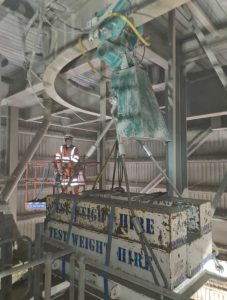
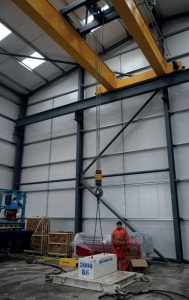

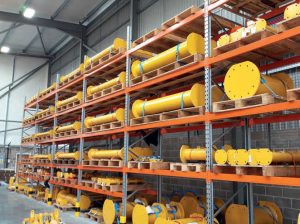
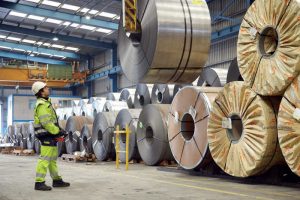
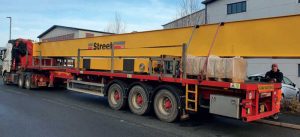
没有评论:
发表评论